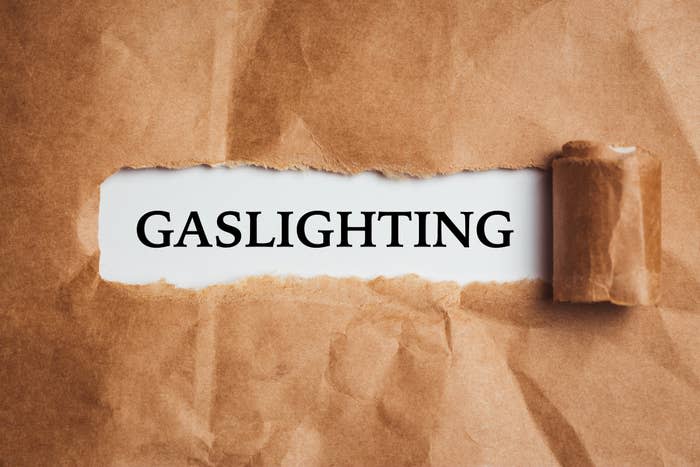Terminology from therapists’ offices and psychology books has increasingly opened up into everyday conversations, both in person and over the Internet.
Therapy talk, as it has been dubbed, refers to prescriptive language that describes certain psychological concepts and behaviors, as journalist Rebecca Fishbein wrote on the subject. (Although the term is new, the concept is not. You may also know it as psychobabble.)
Many of these therapy talk terms have taken on a life of their own on TikTok, Instagram and other social media platforms. Some people misapply clinical jargon because they don’t understand some of the complexities or nuances. Others weaponize these terms as a way to shut down thorny conversations, avoid responsibility, or control others.
The fact that it has become so normal to talk openly about mental health and therapy is a good thing. However, misusing these terms can have negative implications which are covered further below.
We asked therapists to reveal some of the therapy terms they often see misused and why this can be a problem:
1. Gas lighting
Gas lighting is one of the most commonly used terms, according to experts. It is a manipulation tactic, often seen in abusive relationship dynamics, in which one person makes the other question their own judgment, memories, emotions, and reality in order to maintain the upper hand in the relationship.
It’s a serious problem with significant psychological consequences, so it’s important for people to understand its true meaning, New York therapist Keanu Jackson of The Expansive Group told HuffPost.
But these days, some people are too quick to put a gas tag on anyone who disagrees with their point of view.
If a partner sees something from a different perspective, it doesn’t mean they’re gaslighting you, Florida therapist Amy Morin, author of 13 Things Mentally Strong People Dont Do and host of the Mentally Stronger podcast, told HuffPost .
Sometimes behaviors labeled as gaslighting are actually disagreements, misunderstandings or typical relationship conflicts, Jackson added.
2. Enabled

A trigger is something that sets off a strong emotional reaction, often related to past trauma or distressing experiences, Atlanta clinical psychologist Zainab Delawalla told HuffPost.
A trigger can take someone out of the present moment and transport their mind to the past, leading them to re-experience the trauma and its aftermath, he said.
For example, someone who experienced a house fire may experience a flashback or panic attack when they smell smoke or hear a fire alarm.
But now people often use triggered in casual conversation as a way to describe any situation that elicits a negative reaction, however mild, Delawalla said, adding: People tend to misuse the term and say it’s they are triggered by regular experiences that they simply don’t like. .
Some people may say they trigger as a tactic to end a conversation.
It’s often used to get someone else to stop talking about a topic simply because you don’t want to address an issue, Morin said.
3. Trauma

In therapy, trauma refers to deeply distressing or disturbing experiences that overwhelm a person’s ability to cope, often involving harm or a threat of harm to life or limb, Delawalla said. It can cause lasting emotional, psychological and physical effects.
However, in therapy, the word trauma is often applied more liberally to describe any difficult or challenging situation, she said.
Relatedly, the term traumatic attachment is often used imprecisely. It actually refers to a phenomenon in which deep emotional bonds form between a victim and an abuser as a result of enduring cycles of intense, traumatic experiences or abuse followed by positive reinforcement, Jackson said.
This is a manipulation tactic that is based on an imbalance of power within the relationship, he said.
This is quite different from how you typically see traumatic bonds discussed on social media. Online, it’s often used to describe two people connecting over a shared difficult experience, like working for a challenging boss or going through a divorce.
4. Narcissist

Debates about narcissism are everywhere these days, the topic has even been covered quite a bit on HuffPost. But there is an important distinction to be made between possessing some narcissistic qualities (which we all do to varying degrees) and meeting the diagnostic criteria for narcissistic personality disorder.
Narcissist is often used to describe anyone who is assertive, confident or someone who is disliked, Morin said. Someone might refer to their ex as a narcissist, citing the reason they broke up, when in reality, they may have simply had a difference of opinion.
Colloquially, narcissist has become a catchphrase to describe a person you don’t like, he added.
Therapists don’t refer to people as narcissists, Morin said. Instead, they may speak of someone who has a narcissistic personality disorder.
5. Limits

Setting boundaries is respecting your own needs; it’s not about controlling someone else’s behavior. You may remember the alleged text messages between actor Jonah Hill and his ex-girlfriend, surfer Sarah Brady, that he posted on Instagram last year. In them, he asked her to stop surfing with men and posting swimsuit pictures on social media, among other things, under the pretense of respecting her romantic partner boundaries.
Boundaries are putting limits on what you personally are willing to do or tolerate, Toronto psychotherapist Britt Caron previously told HuffPost. A boundary is something you have to determine for yourself, not something you can force someone else to meet.
Let’s say you’re an early bird who’s in a relationship with a night owl. Your limit may be that you refuse social plans that start after 8pm so you can go to bed on time. But telling your partner they can’t go either? This is more of a rule than a healthy limit.
6. validation

Validating someone’s emotions or experience involves listening to them and expressing that you understand their perspective. But that doesn’t mean you have to co-sign what they’re saying.
Therapists validate clients’ feelings by making it clear that they understand and accept that the client is feeling a certain way, Delawalla said.
Many people misuse the term to demand that others validate their experiences or feelings in agreement with them. This is a subtle but very powerful difference. Not all forms of disagreement are invalidating, he added.
The problem with misuse of therapy-Speak

Part of the problem with using these clinical terms is that it projects an air of superiority that puts you above someone who may not be as familiar with the language you’re using, Morin said.
Talk therapy can be a way for someone to try to rise above others by acting as if they have a better understanding of psychology, human behavior and social interactions, he said.
As you might expect, this can be detrimental to the health of the relationship.
People may have a hard time connecting with you if they think you’re going to respond with talk therapy or tell them they’re miscommunicating or that their relationships are bad, Morin added. Most people don’t want to be scrutinized, repeatedly corrected, or warned about their behavior.
Over time, this can create uninformed relationship dynamics with the people in your life, leading to increased conflict and even isolation, Jackson said.
Delawalla acknowledged that while adding these terms to our vernacular helps destigmatize mental health struggles, using them incorrectly is actually a disservice to that goal.
It dilutes the true meaning of these terms and concepts, he said. This is particularly problematic for terms like trauma and triggers, as it hijacks the experiences of those who have actually experienced trauma and serves to minimize its real impact.This article originally appeared on HuffPost.
#Gaslighting #Misused #Terms #Therapists #Share #Therapy #Terms #Wrong
Image Source : www.yahoo.com
